HAVENT YOU HEARD?
HAVENT YOU HEARD?
GOSSIP, POWER, AND HOW POLITICS REALLY WORKS
MARIE LE CONTE

Published by 535
The Plaza,
535 Kings Road,
Chelsea Harbour,
London, SW10 0SZ
twitter.com/535Books
Hardback 978-1-788701-77-8
eBook 978-1-788701-78-5
All rights reserved. No part of the publication may be reproduced, stored in a retrieval system, transmitted or circulated in any form or by any means, electronic, mechanical, photocopying, recording or otherwise, without prior permission in writing of the publisher.
A CIP catalogue of this book is available from the British Library.
Designed and set by seagulls.net
Copyright Marie Le Conte, 2019
Marie Le Conte has asserted her moral right to be identified as the author of this Work in accordance with the Copyright, Designs and Patents Act 1988.
Every reasonable effort has been made to trace copyright holders of material reproduced in this book, but if any have been inadvertently overlooked the publishers would be glad to hear from them.
535 is an imprint of Bonnier Books UK
www.bonnierbooks.co.uk
To , who
, who 
with  and without
and without
whom I
CONTENTS
The foregoing remarks are not intended to imply that politicians are better than other men, but simply that they are like other men. What other men do in their affairs, politicians do in politics. But so high is the standard of behavior expected of the politician that we refuse him the benefit of any doubt until after he is dead. Then, if he is sufficiently eminent and not too odious, we exalt him as a statesman and erect a monument to his memory.
Political philosopher Chester C. Maxey, 1954
When people portray politics for the rest of the population, they leave out the most important thing, which is that its unbelievably enjoyable and everyones having a really great time. Why else would we do it?
Former political adviser Miranda Green, 2018
There are a number of people without whom this book couldnt have existed.
Labour MP Tom Watson isnt one of them; when approached for this book, he refused to be interviewed as gossip isnt really [his] thing. This will be news to a number of people. Moving on
Most of this book was written from The Caf, which I originally decided to name then changed my mind as I selfishly want to keep it all to myself. The staff and the regulars are lovely, the music choices charming if occasionally puzzling, and not an eyebrow was raised when I came in five days a week and only ever ordered two drinks a day. A special thanks must be given to Milo as well, the cheeriest and fluffiest dog south London has ever seen.
It also seems fair to say that I wouldnt have come up with the idea for Havent You Heard? if it hadnt been for Daragh, Agnes, Alex and GH, who are and have always been up for a last-minute pint and a gossip in Westminster. Youre wonderful people and I doubt I would have lasted long in SW1 without you.
On that note, I certainly wouldnt be where I am today without Joy Lo Dico, who was a brilliant boss, showed me there was a living to be made from clever gossip, and lent me her cottage in the woods when I called her in a panic, convinced that I was never going to hand in my book on time. Few things cannot be solved by escaping to the forest for a few days with an overly enthusiastic Vizsla, it turns out.
This section would be incomplete without Imogen, who agreed to meet me for a coffee after I sent her the vaguest of messages about maybe, potentially, having an idea for a book, then helped me turn that sort of, not-quite plan into a genuine proposal. Joel was an absolute pleasure to work with too, patiently nodding at my madder ideas and letting me realise by myself a few weeks later that they were bad, unfeasible or both. The whole process was surprisingly smooth, especially given that I had no idea what I was doing, and that is entirely down to the two of them, as well as the whole team at 535.
Finally, a hearty thank you to my wonderful, weird and intense friends, everyone who agreed to be interviewed for this book, usually at very short notice, the people who sent me their gossip over the course of 2018, and everyone who follows me on Twitter and was subjected to the daily tedious minutiae of book writing for nearly a year. Oh, and my family whom I adore and now know far more about British politics than any foreigner ever should.
When asked if they wanted to be interviewed for a book about political gossip, a lot of people seemed a bit worried. They anxiously wanted to know what the tone of Havent You Heard? was going to be, what its central thesis would end up looking like, and what view it would take on gossip in politics. Is it a good thing? A bad thing? Somewhere uncomfortably in-between?
The first two points will be answered in due course, but the third one is quite straightforward: this book does not make any judgement on gossip in Westminster. Some of it is unquestionably good, some of it is unquestionably bad, the vast majority of it operates in shades of grey, and in any case, a study that takes a moral view on its topic is only of limited interest. Besides, right and wrong are largely subjective values, both in politics and the wider world. An action can be repellent to you but a necessary evil to someone else, and something might be frowned upon in some situations but welcomed in others.
In short, gossip is messy. It is messy because politics is messy, and politics is messy because it is made up of people, and anything with people in it is a mess. Accepting this is a good start-off point. As Maxeys quote sets out, what follows isnt a defence of the political bubble per se; simply an acknowledgement that people who work in SW1 are just that: people. People do stupid things, they get drunk, theyre selfish, make mistakes, love each other, hate each other, and let all of the above influence their work in ways it shouldnt. Of course, said work in this case just so happens to dictate what happens to the country at large, which only goes to add another layer of mess to the situation.
On top of all of this, Westminster is an odd place that makes people take odd decisions, which naturally influences the way they talk and act with one another. Rules are often unclear or unspoken, and so little gets written down or taught through the usual channels that the informal matters to an absurd extent. Thousands of words are written about politics every day, but most of them only ever scratch the surface of why things really happen, and how they really work. This can be alienating and perhaps a reason why so many see politics as dry and dull, when it is often anything but.
It isnt the fault of reporters; having to explain exactly why and how every single thing came to happen would make the entire news industry unsustainable. There arent enough hours in the day for journalists, or enough pages in newspapers. Still, like dark matter hiding in the universe in a form we do not quite understand, this mass of informal conventions, relationships and conversations shapes everything that happens. Take Brexit, for example; as Tim Shipman explains later in this book, much of what has happened in Westminster in the past few years came from friendships, feuds and clashes of personalities. Take them out of the equation and you will find yourself baffled.

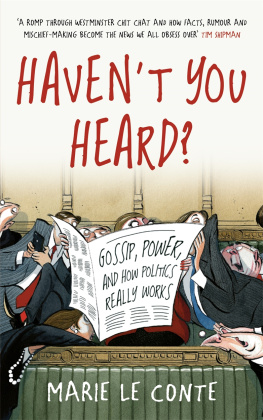
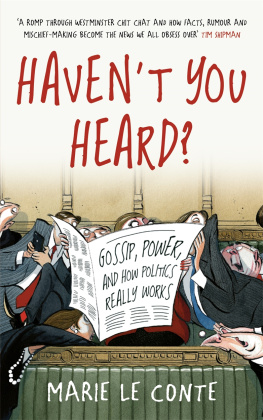


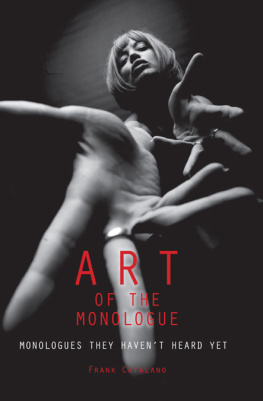
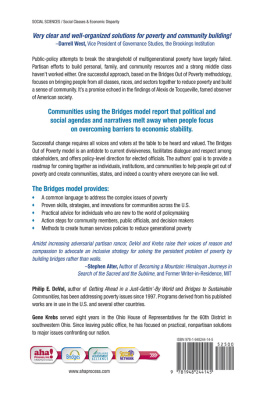
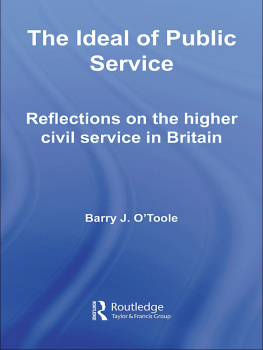

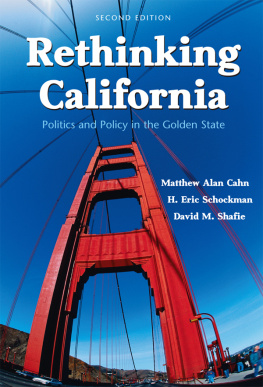



 , who
, who 
 and without
and without